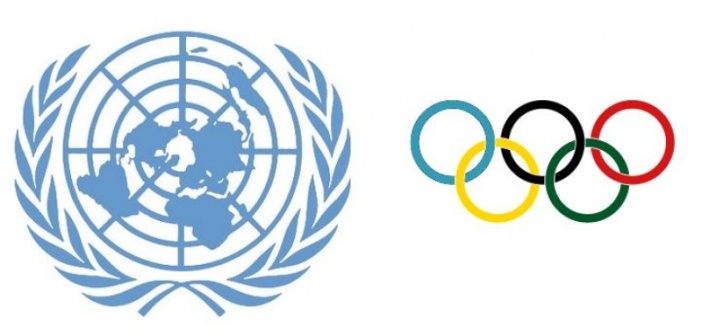The International Olympic Committee (IOC) today welcomed the historic recognition by the United Nations of the autonomy of the IOC and sport.
The recognition comes in a resolution adopted by consensus at the 69th regular session of the UN General Assembly (UNGA) in New York. The document states that the General Assembly “supports the independence and autonomy of sport as well as the mission of the IOC in leading the Olympic Movement”.
IOC President Thomas Bach had emphasized the need for the autonomy of sport in a speech he delivered to the UNGA in New York in November 2013. “Sport is truly the only area of human existence which has achieved universal law,” he said at the time. “But to apply this universal law worldwide, sport has to enjoy responsible autonomy. Politics must respect this sporting autonomy.”
The resolution acknowledges sport as a means to promote education, health, development and peace, and highlights the important role of the IOC and the Olympic Movement in achieving these goals.
It recognizes “that major international sports events should be organized in the spirit of peace, mutual understanding, friendship, tolerance and inadmissibility of discrimination of any kind and that the unifying and conciliative nature of such events should be respected”. This clearly implies that full participation at sporting events is encouraged, and that in turn boycotts are incompatible with this UN request for respect of the values of sport.
“We highly welcome this resolution as a historic milestone in the relations between sport and politics,” President Bach said today. “We must form partnerships with political organizations based on this recognition of the autonomy of sport. The excellent relations between the UN and the IOC can in this respect serve as an example for relations on the national level between National Olympic Committees and national governments. This relationship with governments requires that sport always remains politically neutral.”
The UN acknowledged the Olympic Charter, and in particular Principle 6, that “any form of discrimination is incompatible with belonging to the Olympic Movement”. This acknowledgement reflects the IOC’s responsibility to have Principle 6 and the Olympic Charter fully respected at the Olympic Games and in its Olympic activities.
As a sports organization, the IOC does not, however, have a mandate to impose measures on sovereign states outside its own fields. The Olympic Games can show the world and the host country that a peaceful society is possible, that competition among people can happen in harmony and with respect for the dignity of all.
In a letter to the Presidents of the 205 National Olympic Committees, the IOC President called on them to strengthen the autonomy of sport in their countries and, in any dialogue with their national political leaders, to encourage them “to give sport due consideration in the context of the UN post-2015 Development Agenda”.
“It is essential that NOCs work with national governments to integrate sport into those goals, particularly in the fields of education, health, urban planning, cohesion of society and peace-building,” President Bach wrote.
The announcement by the UNGA was taken after the UN Secretary-General presented a biennial report on Sport for Development and Peace. The IOC, enjoying UN Observer Status since in 2009, was represented by IOC member and Permanent Observer of the IOC to the United Nations Mario Pescante.
In his speech on behalf of the IOC, Pescante said: “The IOC’s collaboration with the UN demonstrates the positive impact that results from effective engagement between sport, business, politics, culture and other aspects of society. Sport can change the world, but it cannot change the world alone. That is why the IOC, under the leadership of President Thomas Bach, is engaging more than ever before with political and business leaders at the highest levels.”
The UN Secretary-General will report back to the UNGA at its 71st Session on the implementation of the initiatives outlined in the resolution during an item on the agenda called “Sport for development and peace”.




